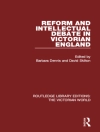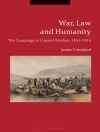During the Cold War, Sweden actively cultivated a reputation as the “conscience of the world, ” working to build bridges between East and West and embracing a nominal commitment to international solidarity. This groundbreaking study explores the tension between realism and idealism in Swedish diplomacy during a key episode in Cold War history: the Conference on Security and Cooperation in Europe, culminating in the 1975 Helsinki Accords. Through careful analysis of new evidence, it offers a compelling counternarrative of this period, showing that Sweden strategically ignored human rights violations in Eastern Europe and the nonaligned states in its pursuit of national interests.
İçerik tablosu
Figures
Abbreviations
Acknowledgements
Introduction
Chapter 1. 1945-1969: Sweden and Europe in a Changing World
Chapter 2. 1969–1971: Doubting Détente
Chapter 3. 1971–1972: Assuming the Role of the Realist
Chapter 4. 1972–1973: Engaging in the Dipoli Tea Party
Chapter 5. 1973-1975: Making the Helsinki Final Act
Conclusion
Yazar hakkında
Aryo Makko is Associate Professor of History at Stockholm University and has been a visiting fellow at the Graduate Institute in Geneva, the University of Oxford and Harvard University. He was selected as a Pro Futura Scientia fellow by the Swedish Collegium for Advanced Study (SCAS) in 2016. His work has appeared in the Journal of Cold War Studies and Diplomacy & Statecraft, among others.












